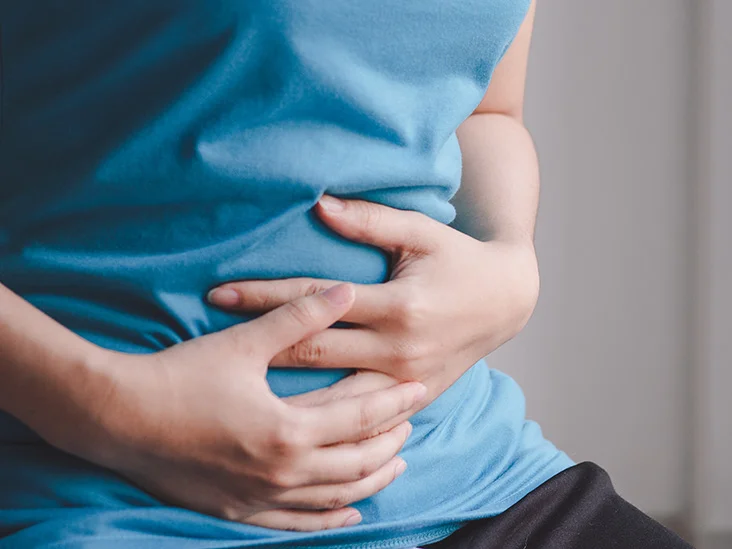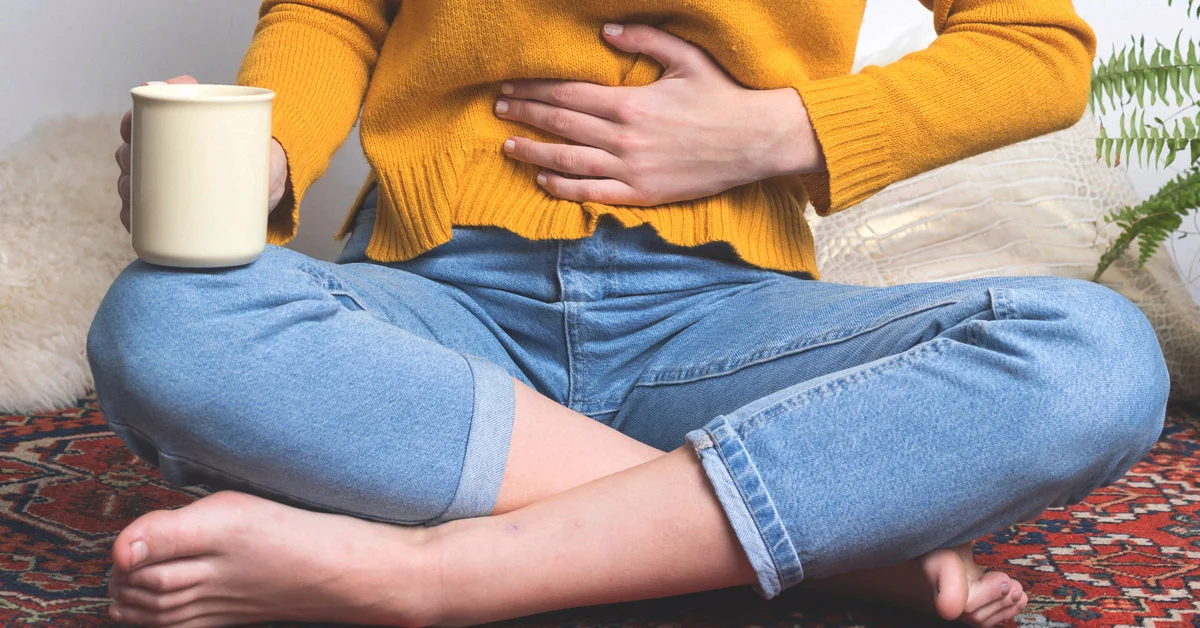Do you know what a gallbladder attack is and how to stop one in progress? Before answering those questions, let’s look at what the gallbladder does.
A gall bladder is a small, pear-shaped organ located beneath the liver. It stores bile produced by the liver, which helps the body digest fat. Gallstones, which are hardened deposits of bile, can form in the gallbladder and cause pain and other symptoms. Gallbladder removal is often necessary to treat gallstones and other gallbladder problems.
A gallbladder attack, or cholecystitis, is a sudden, severe episode of abdominal pain caused by a blockage of the gallbladder. The pain is usually located in the upper right side of the abdomen and lasts several hours. Other symptoms associated with a gallbladder attack include nausea, vomiting, sweating, and chills.
Gallbladder attack can be a painful and frightening experience. The pain is usually located in the upper right side of the abdomen, below the rib cage, and can radiate to the back and shoulder blade. The pain is usually caused by gallstones blocking the bile ducts, leading to a buildup of bile and pressure in the gallbladder. It is important to seek medical attention as soon as possible, but you can also take some steps at home to reduce the pain and discomfort.
Facts About Gallbladder Attack
- Around 20 million Americans are estimated to have gallbladder disease
- Gallbladder attacks occur most frequently between the ages of 20 and 60
- Gallbladder attacks are more common in women than in men
- Common symptoms of a gallbladder attack include abdominal pain, nausea, vomiting, and fever
- The most common cause of a gallbladder attack is the formation of gallstones
- A gallbladder attack may be treated with surgery, medications, or dietary changes
- Complications of a gallbladder attack may include infection, pancreatitis, and jaundice
- The risk factors for gallbladder attacks include obesity, diabetes, high cholesterol, and certain medications

What Causes a Gallbladder Attack
Gallbladder attacks are caused by gallstones, which are small, hardened deposits of digestive fluid that can form inside the gallbladder. Gallstones can block the flow of bile from the gallbladder, leading to an attack. Other potential causes include obesity, rapid weight loss, and certain medications.
Causes of a Gallbladder Attack
- Eating a high-fat diet: Eating a diet that is high in saturated fats, trans fats, and cholesterol can increase your risk of developing gallbladder problems, including gallbladder attacks.
- Being overweight or obese: Being overweight or obese increases your risk of developing gallbladder disease and gallbladder attacks.
- Eating large meals: Eating large meals can cause your gallbladder to contract and can lead to a gallbladder attack.
- Rapid weight loss: Rapid weight loss can cause the gallbladder to become inflamed, leading to a gallbladder attack.
- Pregnancy: Pregnancy can cause the gallbladder to become inflamed, leading to a gallbladder attack.
- Certain medications: Certain medications, such as birth control pills and cholesterol-lowering drugs, can increase your risk of developing gallbladder problems, including gallbladder attacks.
- Genetics: Genetics may play a role in your risk of developing gallbladder problems, including gallbladder attacks.
Symptoms of a Gallbladder Attack
A gallbladder attack is a medical condition that causes severe abdominal pain and discomfort. Symptoms of a gallbladder attack can include intense pain in the upper right side of the abdomen, pain that radiates to the back, nausea and vomiting, fever, chills, and jaundice. The pain of a gallbladder attack usually starts suddenly and may last for several hours. It can be sharp, stabbing, and steady or come and go in waves. Other symptoms include bloating, indigestion, and gas. People may also experience sweating and a rapid heartbeat. If the pain of a gallbladder attack is severe or lasts more than a few hours, it is important to seek medical attention. Symptoms of a gallbladder attack can range from mild to severe, and if left untreated, can lead to serious complications. If you experience any of the below symptoms associated with a gallbladder attack, it is important to seek medical attention to rule out any serious underlying conditions.
- Pain: The primary symptom of a gallbladder attack is intense, steady pain in the upper right abdomen. The pain may spread to the back or below the right shoulder blade. It can last several minutes to several hours.
- Nausea and vomiting: Nausea and even vomiting are common during a gallbladder attack.
- Fever: A gallbladder attack may accompany a fever if the gallbladder becomes infected.
- Yellowing of skin and eyes: Jaundice may develop if the gallbladder becomes infected. This is a yellowing of the skin and eyes due to a buildup of bile in the body.
- Sweating: Sweating is also common during a gallbladder attack.
- Chills: Chills may also accompany the fever during a gallbladder attack.
- Bloating: Bloating and a sensation of fullness in the abdomen may occur during a gallbladder attack.

- Burping: Burping is common during a gallbladder attack.
- Heartburn: Heartburn is another symptom of a gallbladder attack.
- Indigestion: Indigestion may occur during a gallbladder attack.
- Diarrhea: Diarrhea may accompany a gallbladder attack.
- Intolerance to fatty foods: People with gallbladder problems may experience an intolerance to fatty foods.
- Dark urine: Dark urine may occur during a gallbladder attack due to a buildup of bile in the body.
- Light-colored stool: Light-colored stool may occur during a gallbladder attack.
Steps To Take To Stop A Gallbladder Attack While It Is Happening
- Seek Medical Attention: As soon as you experience the symptoms of a gallbladder attack, it is important to seek medical attention. It is best to get a diagnosis from a doctor to ensure that the symptoms experienced are due to a gallbladder attack and not something else.
- Avoid Trigger Foods: Certain foods may trigger a gallbladder attack and should be avoided. These include fatty, fried, and processed foods. Sticking to a healthy diet with plenty of fruits, vegetables, lean proteins, and whole grains is best.
- Take Pain-Relieving Medication: Over-the-counter pain medications that contain acetaminophen or ibuprofen can help to relieve the pain and discomfort associated with gallbladder attacks. It is important to follow the instructions on the label and consult a doctor before taking any medications.
- Apply Heat: Applying a heating pad or warm compress to the affected area can help to relieve some of the pain associated with gallbladder attacks.
- Drink Plenty of Water: Staying hydrated during a gallbladder attack can help to flush out the gallstones and reduce the symptoms. Drinking plenty of water and other fluids throughout the day is important.
- Increase Fiber Intake: Increasing your fiber intake can help reduce the risk of gallstones and may help reduce the pain associated with gallbladder attacks. Foods high in fiber include fruits, vegetables, and whole grains.
- Reduce Stress: Stress can be a trigger for gallbladder attacks, so it is important to reduce stress as much as possible. Taking time to relax and practice stress-reducing activities like yoga and meditation can help to reduce symptoms.
- Exercise Regularly: Regular exercise can help reduce the risk of gallstones and the symptoms associated with gallbladder attacks. Talking to a doctor before starting an exercise program is important to ensure it is safe for you.

- Avoid Alcohol: Alcohol can increase the risk of gallstones and may trigger an attack, so it is important to avoid it.
- Get Regular Checkups: Regular checkups with your doctor can help identify any potential issues with your gallbladder before they become a problem. It is also important to talk to your doctor about any changes in your diet or lifestyle that may be affecting your gallbladder health.
Although a gallbladder attack can be very painful, above mentioned things you can do to help relieve the pain and lessen the severity of the attack. If the pain persists, seek medical attention to prevent further damage to the gallbladder. Early diagnosis and treatment can help reduce the attack’s severity and prevent further pain and discomfort. If you or someone you know is experiencing symptoms of a gallbladder attack, make an appointment with a healthcare provider as soon as possible.

